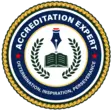
Enroll in Arizona State Approved Vocational Schools
Overview
In Arizona, private vocational, trade, and career training schools are regulated by the State Board for Private Postsecondary Education. If a school offers non-degree programs designed to prepare students for specific occupations- often measured in clock hours and leading to a certificate instead of a college degree- it typically requires a Private Vocational Program license from the AZPPSE. Arizona law defines a “private vocational program” as any postsecondary instructional program (outside the K-12 system) that does not confer a degree but aims to provide skills for entry into a paid occupation. This includes trade schools, technical institutes, career training centers, and similar educational entities. Essentially, whether a school intends to offer coding boot camps, cosmetology, truck driving, medical assisting, or other career skills, it must obtain state approval unless an exemption applies.
Licensing Requirements
To operate a vocational or clock-hour school, the owner must obtain a Private Vocational Program License according to A.R.S. §32-3021. Similar to degree-granting institutions, each specific program or course offered must be authorized on the license (the Board will list the approved programs on the issued license). Applicants for a vocational license must meet a set of baseline qualifications. Key requirements include:
- Surety Bond or Security: The school must furnish a surety bond, letter of credit, or cash deposit to the Board (per A.R.S. §32-3023) to provide financial security for students (e.g., refunds if the school closes). The minimum bond is $15,000, with the Board authorized to require higher amounts based on the size of the school.
- Disclosure of Information: The school must make available to prospective students a catalog or information packet detailing the program’s purpose, curriculum, admission requirements, fees, and policies. This ensures transparency about the training offered.
- Financial and Administrative Capacity: The applicant must be financially responsible and have the management capability to run the school. The Board will review financial statements and business plans to verify the school’s stability.
- Qualified Faculty: Instructors should have appropriate qualifications and experience in the subject they will teach. The Board expects evidence that faculty meet minimum education or industry experience standards relevant to the vocation.
- Facilities and Equipment: The school must have adequate facilities, tools, and instructional materials for the program. All locations must comply with state/local health and safety codes (e.g., fire inspections and occupancy permits).
- Recordkeeping: Proper student records (attendance, progress, academic records, financial ledgers) must be maintained and safeguarded as the Board prescribes.
- Advertising Ethics: All advertising and promotional materials must be truthful and consistent with the services offered. Misleading or fraudulent advertising is prohibited (grounds for disciplinary action).
- Student Protections: The school needs to have a grievance process for student complaints and comply with all applicable federal/state laws (e.g. ADA, anti-discrimination laws).
The application requires documentation to evidence compliance with all these criteria. AZPPSE will typically conduct an on-site visit to verify facilities, review records, and interview staff before granting the license. If an applicant is a new institution, the Board may issue a conditional license with modified requirements – similar to degree institutions – allowing some leniency on specific items (such as financial history or detailed records) until the school has operated for a period. This provisional licensure is one-time and closely monitored by the Board to ensure the school eventually meets all standard requirements.

Clock Hour vs. Credit Hour Programs
Arizona’s regulations do not significantly alter the licensing process based on whether a program is measured in clock hours or credit hours; the key distinction lies between degree and non-degree programs. Clock-hour programs, common in trades and short courses, along with non-degree credit-hour programs (e.g., a one-year certificate with credits), fall under vocational licensing if they do not confer a degree. The Board’s oversight emphasizes program content and outcomes rather than merely focusing on the time metric. However, the Board will consider program length and cost: notably, Arizona exempts very short and low-cost courses from licensure (see “Exemptions” below). If a vocational program has fewer than 40 contact hours and charges less than $1,000 in tuition, it is exempt from AZPPSE licensing. This means that micro-courses or workshops may not require approval. Programs exceeding these limits, whether measured in clock hours or credits, generally must obtain a license unless another specific exemption applies. For example, a 600-hour cosmetology course or a 300-hour truck driving course would require a license, while a weekend 16-hour workshop likely would not (due to the < 40-hour rule).
Regulatory Bodies and Special Cases
AZPPSE is the primary regulator for most private career schools, but some vocational programs are overseen by other agencies. Arizona law lists several exemptions where AZPPSE licensure is not required, often because another state entity licenses or the program is specific. Key examples:
- Schools Licensed Under Other Provisions: If a school is already licensed under a different chapter of Title 32, it is exempt from the AZPPSE. For example, cosmetology and barber schools are licensed by the Arizona Board of Cosmetology (Title 32, Chapter 5), so they do not require a separate AZPPSE license. Likewise, nurse assistant training programs approved by the Arizona Board of Nursing and professional driver training schools licensed by the Department of Transportation are also exempt.
- Trade Associations and Employers: Programs offered internally by businesses for their employees or training provided by a legitimate trade association exclusively for its members are exempt. Additionally, employer-sponsored training that is free for employees (with no tuition charged) and delivered under contract is also exempt.. This allows corporations to train staff without a school license.
- Recreational, Avocational, and K-12 Programs: Instruction that is purely avocational or for personal enrichment (hobbies, non-career) is exempt as long as any career benefit is incidental. Additionally, private academic schools (K-12) that mainly provide general education diplomas (e.g., private high schools) do not fall under AZPPSE, even if they include some technical courses . These schools are considered part of general education, not postsecondary vocational training.
- Flight Schools: Flight training programs under federal approval (FAA Part 141) are exempt.
- Specialized Exemptions: Arizona has enacted specific exemptions for certain industries. For instance, yoga teacher training programs were explicitly exempted from AZPPSE oversight in recent years. House Bill 2613 (2017) amended the law, allowing yoga instructor courses to operate without a license, aligning Arizona with other states that have removed yoga schools from vocational licensure. This was a significant change that benefitted many small yoga studios. Similarly, short courses (less than 40 hours and under $1,000) are exempt, enabling single-day seminars or small coding bootcamps to operate without undergoing the entire licensure process.
If a vocational school qualifies for any exemption, it does not need to be licensed by AZPPSE. However, some exempt institutions may choose to voluntarily “opt-in” to AZPPSE regulationfor credibility or to meet federal aid requirements. Arizona law allows an otherwise exempt institution to notify the Board if it wishes to come under AZPPSE oversight. This may occur, for instance, if a trade association school seeks a state license to assist students in obtaining veteran funding or similar support.

Nonprofit Considerations (Vocational Schools)
Nonprofit status generally does not alter the licensing requirements for career schools. A nonprofit vocational training center is treated the same as a for-profit school under AZPPSE rules. It must obtain a license unless it qualifies for one of the statutory exemptions. Many nonprofits may qualify for exemptions (e.g., a church-run hobby class or a charitable free training program would be exempt if there is no tuition or if it is purely avocational). However, a nonprofit organization must be licensed if it offers tuition-based career education to the public (for instance, a nonprofit IT training academy). The process and fees are identical for nonprofits; Arizona does not provide a blanket exemption or expedited path solely based on an organization’s 501(c)(3) status. The organization should be ready to submit its nonprofit incorporation papers and financial documents during the application process, just as a business would. One nuance: if a nonprofit vocational school is genuinely part of a religious institution and its courses are religious, it might argue for an exemption similar to religious degree programs, but most vocational training does not fall into that category. In summary, being a nonprofit is largely neutral in Arizona’s vocational licensing framework. What matters is the nature of the program (degree vs. non-degree, career-oriented or not, etc.) rather than tax status.
Application Process and Timeline
The steps to license a vocational school mirror those for degree institutions. Applicants contact AZPPSE and use the online portal to create a school profile and submit the required information. They must then complete the application form (with sections on ownership, program descriptions, instructor resumes, facility lease or ownership proof, etc.). Once a complete application is submitted, the Board will initiate the review. By rule, the Board follows specific timeframes to grant or deny the license – these timeframes (outlined in AAC R4-39-102) ensure that an applicant gets a decision in a reasonable period, typically within 60–120 days of a “complete” application. If deficiencies are found, the Board may allow corrections or place conditions. New vocational schools often receive an initial one-year license with extra monitoring. After the first year, the license is typically renewable annually, with the school required to submit renewal applications and remain in compliance. Thereafter, any substantial changes (like adding a new training program or relocating the school) require Board approval via a “supplemental application.”
Fees
The fee schedule for vocational institutions aligns with private colleges under AZPPSE. The initial application fee is $2,000, which covers up to five programs, with a small incremental fee for each additional program exceeding five. Annual renewal fees are tiered based on the school’s revenue, which ranges from $750 to $6,000. The Board also imposes fees for specific modifications, such as $500 to add a new program certificate at a later date. All licensed schools, including nonprofit institutions, contribute to the Student Tuition Recovery Fund as determined by the Board, which may reimburse students if a school unexpectedly closes. There may be costs associated with site visits, with the Board charging up to $500 for an on-site inspection, typically just the actual travel cost. Career school entrepreneurs must factor these regulatory costs into their business plans.
Key Resources
Prospective vocational school operators should review Arizona Revised Statutes §32-3021, which outlines the licensing requirements and exemptions for private vocational programs. The AZPPSE website provides a checklist of required documents and contact information for Board staff who can assist new applicants. Additionally, AZPPSE’s published Policies and Substantive Policy Statements, available under their site’s “Resources” section, may offer guidance on specific topics such as electronic submission of applications or surety bond requirements. It is also advisable to consult the relevant licensing boards for specialized programs. For example, you should contact the Board of Cosmetology if opening a cosmetology school. If you offer real estate pre-licensing courses, be aware that these fall under the Arizona Department of Real Estate’s approval process, distinct from AZPPSE’s scope. Finally, Arizona is known for a relatively business-friendly environment for education providers – the Arizona Commerce Authority and other bodies even provide guidance for educational startups on navigating licenses (noting that many small-scale or innovative education models may not require heavy licensing in AZ). Always verify whether your specific program needs AZPPSE licensure or falls under an exemption to ensure compliance from day one.
📞 Contact us at Info@accreditationXpert.com or visit contact-us page to learn more.




